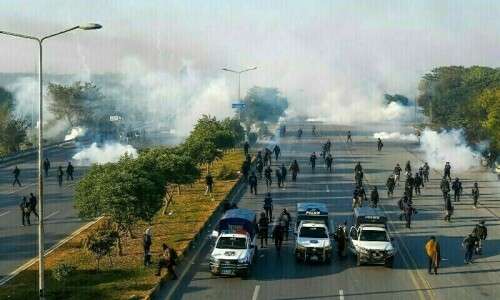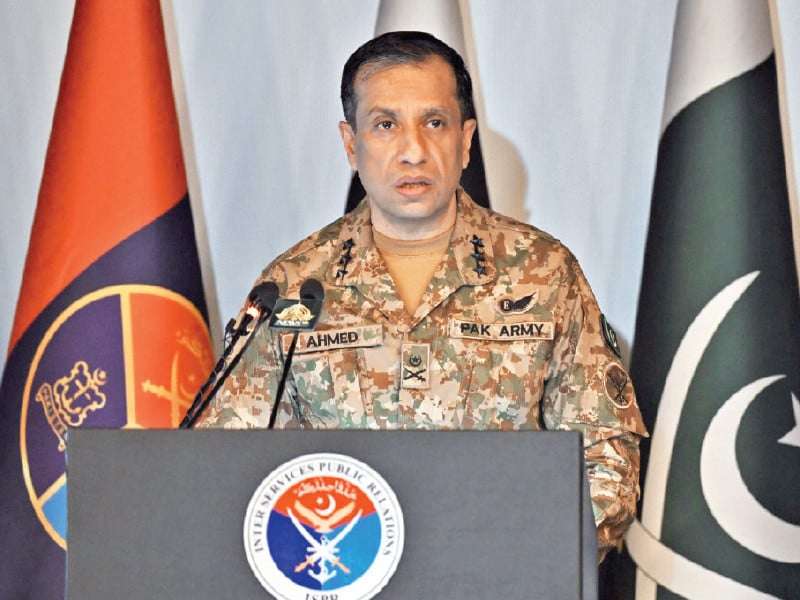On Saturday, the Islamabad Anti-Terrorism Court (ATC) granted the release of 38 individuals who had been arrested in connection with the PTI’s protest in the D-Chowk area last month. The court’s decision follows the completion of identification parades for these suspects. Meanwhile, 50 other suspects were placed on judicial remand after appearing before the court. This move comes after a series of protests led by Pakistan Tehreek-e-Insaf (PTI), which had escalated into violent clashes between party supporters and security forces, raising concerns over the conduct of arrests and the administration of justice.
Background of the D-Chowk Protest and Events Leading to Arrests
On November 13, PTI’s founder Imran Khan called for a “final nationwide protest” scheduled for November 24. The demonstration was part of a broader campaign by the party, which demanded the restoration of PTI’s electoral mandate, the release of its detained leaders, and the reversal of the controversial 26th Amendment, which the party claimed had bolstered what it described as a “dictatorial regime.”
However, the protests reached their peak on November 27, when violent clashes erupted between the protesters and law enforcement agencies. PTI supporters and security forces clashed in the federal capital, leading to significant casualties. Six individuals, including a police officer and three Rangers officials, were reported dead due to the violence, which included a tragic incident where a vehicle ran over law enforcement personnel.
The protests caused a major disruption in the capital, especially around the Red Zone area, a highly sensitive district that houses important government buildings. This eventually forced the PTI leadership and their supporters to retreat. In the aftermath of the violence, the police launched a widespread crackdown across Rawalpindi and Islamabad, arresting over 1,400 PTI supporters. A number of cases were filed against the party’s leaders and activists.
The Role of the Islamabad ATC in the Protest Cases
The Islamabad Anti-Terrorism Court (ATC) has been at the center of handling legal proceedings related to the protests. The court, under the direction of Judge Abul Hasnat Mohammad Zulqarnain, heard the cases of the arrested suspects. On Saturday, during a scheduled hearing, 56 individuals, who had been identified in relation to the protest, were presented before the court. The police had initially requested a 20-day physical remand for these suspects, but this request was opposed by the defense counsel, Ansar Kayani. Kayani argued that many of the suspects had been arrested from their homes well before the protest took place, and no further evidence was expected to be retrieved from them.
Court’s Ruling on Remand and Discharge of Suspects
Judge Zulqarnain ruled in favor of the defense, rejecting the police’s request for a 20-day physical remand. Instead, 50 suspects were sent on judicial remand, while six others were discharged. The judge also ordered that the six discharged suspects have their handcuffs removed, and instructed the police not to rearrest them. This decision came as part of the court’s focus on ensuring that proper legal procedures were followed in each case, especially regarding the identification parades.
The ATC also addressed concerns about the arbitrary nature of some arrests, with the judge remarking that if the police attempted to rearrest the discharged individuals, he would take strong action against the authorities. He also criticized the police for detaining individuals without proper identification or necessary evidence.
The Situation of Other Protest Cases in Islamabad
In a separate hearing, the court handled the cases of 36 suspects arrested in relation to protests near I-9 and Margalla police stations. The police had requested a 30-day physical remand for these suspects, claiming they were arrested on November 25. However, the defense lawyer pointed out that no identification parade had been conducted for these individuals, and thus, their continued detention was unwarranted.
Judge Zulqarnain again sided with the defense, ruling that the suspects be discharged after their handcuffs were removed. He sternly warned the police against making arbitrary arrests, stating that if such actions were repeated, the authorities responsible would face consequences.
The Bail of Teenage Protesters
In an important development, the ATC granted bail to three teenagers who had been arrested in connection with a protest case filed by the Secretariat police station. The teenagers, aged 14, 16, and 17.5 years, were released on bonds of Rs10,000 each. The court took a strong stance against the police for failing to produce necessary records and documents regarding the arrests, which had been delayed.
Legal Concerns and Criticisms of Police Conduct
The manner in which arrests were carried out during and after the PTI protests has been a topic of widespread criticism. The Islamabad High Court had previously expressed dissatisfaction with the arbitrary nature of some arrests. Many of those arrested were reportedly picked up from their homes, and there were allegations that the police had detained people who were not even involved in the protests. The lack of proper documentation and identification procedures has also been flagged as a major issue.
These legal concerns have raised questions about the transparency of the judicial process and the need for reform in law enforcement practices. It is clear that while the courts have been working to ensure that due process is followed, the situation remains contentious.
The Political Context of the PTI Protests
The PTI protests have been part of a broader political struggle between the party and the government, with PTI accusing the ruling coalition of undermining democracy and manipulating electoral processes. Imran Khan’s call for mass protests has been part of his strategy to regain political power, while the government has insisted that the actions of PTI supporters were unlawful and disruptive.
The clash between PTI supporters and security forces has deepened political divides in Pakistan, and the issue of accountability for the deaths during the protests remains unresolved. As the legal proceedings continue, it is clear that both the political and judicial systems will be under scrutiny.
FAQs About the Islamabad ATC Rulings on PTI Protest Cases
1. What is the Islamabad ATC’s role in the PTI protest cases? The Islamabad Anti-Terrorism Court (ATC) is responsible for handling the legal proceedings related to the arrests and charges against PTI supporters involved in the D-Chowk protest.
2. Why were the 38 suspects released by the ATC? The ATC released 38 suspects after the police failed to provide sufficient evidence or conduct proper identification parades, resulting in their discharge.
3. What is the significance of the court’s decision to grant bail to three teenagers? The court’s decision to grant bail to three teenagers emphasizes the importance of following legal procedures and ensuring that minors are not subjected to unfair detention.
4. What are the criticisms surrounding the arrests made during the PTI protests? Critics have raised concerns over arbitrary arrests, the lack of identification procedures, and the detention of individuals without sufficient evidence, leading to questions about police conduct and the fairness of the judicial process.
5. How has the PTI reacted to the legal proceedings and arrests? PTI has criticized the government’s handling of the protests and arrests, accusing the authorities of undermining their political struggle and violating democratic principles.
MUST READ
https://flarenews.pk/2024/12/14/senate-passes-national-forensics-agency-bill/



